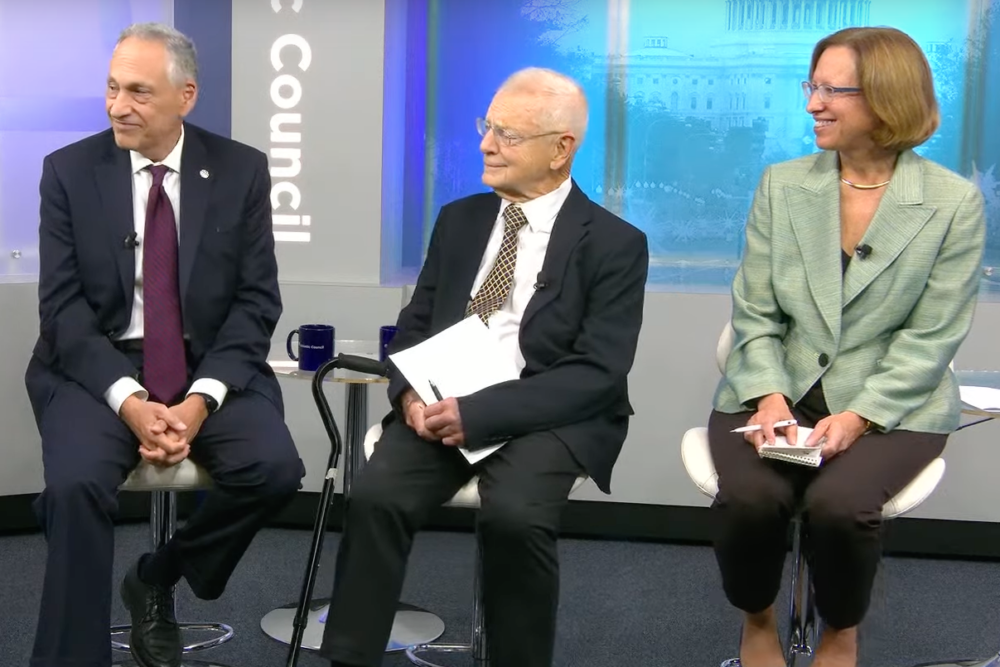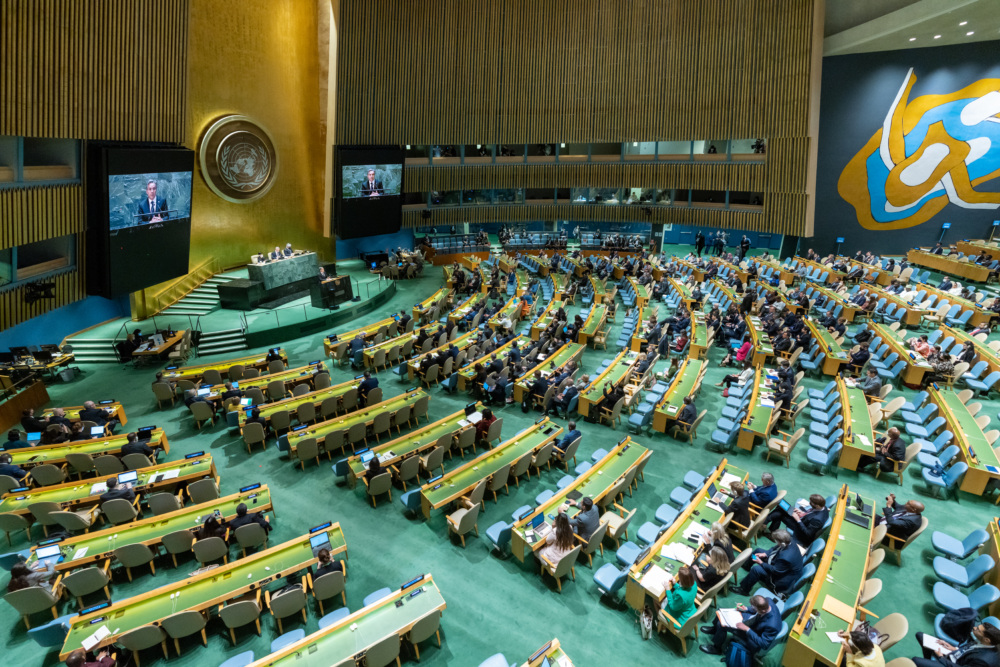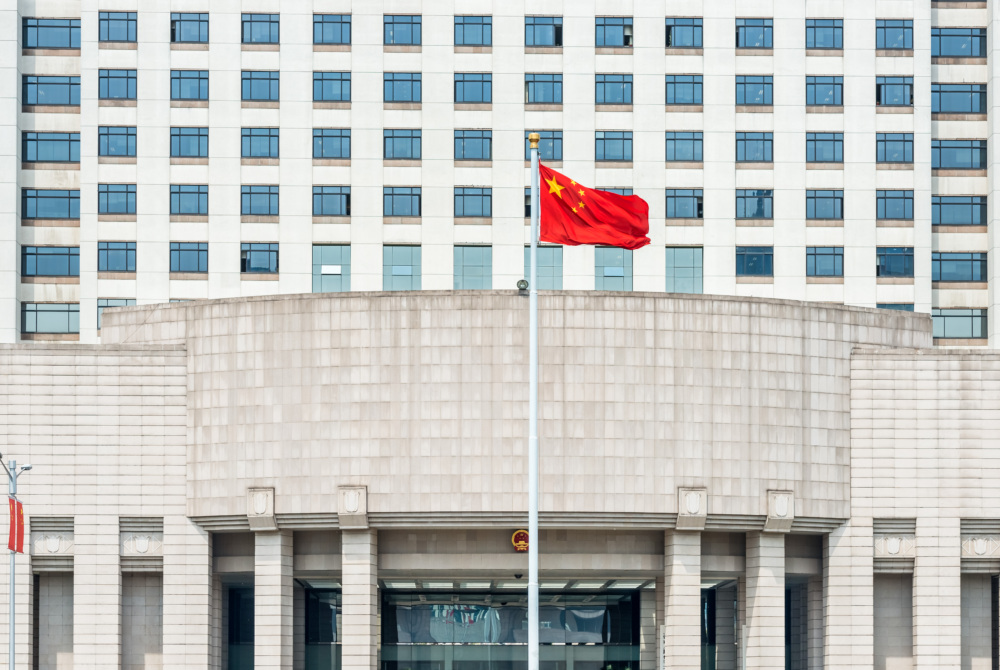
Isabelle Williams
Senior Director, Global Nuclear Policy Program
Atomic Pulse
Every five years, leaders gather at the
United Nations Headquarters in New York to review implementation of the 1968 Treaty on the
Non-Proliferation of Nuclear Weapons (NPT). In the lead-up
to each NPT Review Conference (RevCon), three preparatory meetings are held to
help set the stage. The first of these Preparatory Committee (PrepCom) meetings
for the 2020 RevCon will be held 2-12 May in Vienna.
NTI’s Isabelle
Williams, senior advisor to the Global Nuclear Policy
Program, traveled to Santiago, Chile to observe a
meeting hosted by the Dutch Ministry of Foreign Affairs (MFA) organized in
support of their role as Chair of the 2017 NPT PrepCom. Here is her report:
The meeting in Santiago, organized in coordination with the Chilean
Ministry of Foreign Affairs, was the final regional conference organized by the
Dutch government before the May PrepCom meeting (previous conferences were held
in Jakarta and Dakar).
These meetings have given the organizers an important opportunity to
consult with regional leaders and hear diverse perspectives and priorities on the
three pillars of the NPT – nonproliferation, disarmament, and peaceful uses of
nuclear energy. NTI and our partners also provided valuable input to the Dutch
MFA as they developed their plans.
The Santiago conference was well attended with participants representing
a number of Latin American countries (each country was invited to send a
representative). Irma Arguello from NPSGlobal Foundation (based in Buenos
Aires) presented to the group, as did other members of the Latin American
Leadership Network (a group of senior
former political and diplomatic leaders from across the Latin American and
Caribbean region working to develop policies, capacity, and political
leadership to reduce nuclear threats in their region and globally).
The region has an important voice on these issues. This year is the
celebration of fifty years of the Latin American and the Caribbean Nuclear
Weapon-Free Zone Treaty, otherwise known as the Treaty of Tlatelolco. This
treaty took effect in 1967 and secures the continent as a nuclear-weapon-free
zone—a potentially powerful statement to the rest of the world. Argentina recently
gave up its highly enriched uranium (HEU) also making the region an HEU-free
zone, another important contribution to global nonproliferation and
disarmament. It was also noted that Ambassador Elayne Whyte Gómez of
Costa Rica was elected chair of the ban treaty negotiations and Ambassador Rafael
Grossi of Argentina has been proposed for president of the 2020 NPT Review
Conference.
A clear message that emerged was the importance of current
negotiations on a treaty banning nuclear weapons and the urgent
need for nuclear weapon states to demonstrate their commitment to
Article VI of the NPT – “to pursue negotiations in good faith on effective
measures relating to cessation of the nuclear arms race at an early
date and to nuclear disarmament.”
Many countries in the region view the ban treaty negotiations as an
essential process, although there are varying levels of enthusiasm and different
perspectives on issues raised in the treaty negotiation process. Although there
is awareness of the concern that a ban treaty could undermine the NPT, the view
held by certain states is that it is not an alternative but a complementary
process that will strengthen and support the NPT. According to a few countries,
the real threat to the NPT comes not from the ban treaty but from nuclear
weapon states that continue to rely on, and modernize, their nuclear weapon arsenals.
One interesting theme raised during the meeting was the need to
strengthen regional cooperation between countries to help better define the
regional position on disarmament and nonproliferation issues. There are a
number of regional forums that could potentially serve this purpose, including the
Community of Latin American and Caribbean States (CELAC), the Latin
American and Caribbean Group (GRULAC), and the Agency for the Prohibition of
Nuclear Weapons in Latin America and the Caribbean (OPANAL). While OPANAL was recognized
as an obvious choice, it was noted that countries should ensure the agency has the
resources and political attention necessary to serve this role.
Another interesting discussion was on the experience of the
Argentine-Brazilian Agency for Accounting and Control of Nuclear Materials (ABACC)
and whether this model could be replicated in other regions, for example
between India and Pakistan. ABACC was established in 1991 and is a binational
safeguards agency responsible for verifying all the nuclear materials in Argentina
and Brazil are used exclusively for peaceful purposes. ABACC is the only binational
safeguards organization in the world and its operating model, based on
principles of building trust, has so far been highly successful. It was noted
that the ABACC experience deserves more attention from the global community.
The Dutch government should be commended for organizing these
consultations across different regions. Fostering inclusivity and transparency
within the NPT process is extremely important given the differing positions
among states on the future of the treaty and the potential impact of pursuing a
global treaty to ban nuclear weapons. There is also a serious need for outreach and
trust building between the nuclear weapon states (UK, U.S., France, Russia, and
China) and the non-nuclear weapon states to develop better understanding of different perspectives and security concerns, and to
build bridges between supporters of a ban treaty, nuclear weapon states, and those
states under the “nuclear umbrella” but sympathetic to the ban.
Sign up for our newsletter to get the latest on nuclear and biological threats.
Lynn Rusten, vice president of NTI’s Global Nuclear Policy Program, shares her reaction to the 2023 Strategic Posture Report during a panel event at the Atlantic Council.
As officials prepare to meet in Vienna for the 2023 PrepCom, they should consider some of the key themes that have emerged from NTI’s Global Enterprise to Strengthen Non-Proliferation and Disarmament.
Amid uncertainty around China’s expanding nuclear program and silence from Beijing about the intent behind the build-up, a new report offers details about China’s nuclear program that suggest significant implications for U.S. and global security.



